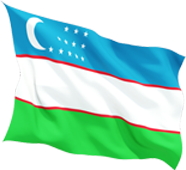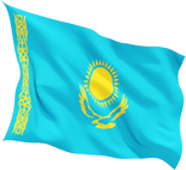Uzbekistan’s first Public Service Centres (PSCs) were established five years ago, as a means of ensuring wider use of public services, reducing the time and financial costs of accessing services, and increasing the population’s satisfaction with how state bodies serve them.
PSCs deliver services to individuals and legal entities using the ‘one stop’ principle, by which the public can access a service through one visit to a single office. Delivering fast, high-quality and transparent service requires avoiding bureaucracy and administrative obstacles. It requires the ability to transfer documents and information digitally between offices. Lastly there is the need to ensure compliance with the requirements of legal documents and administrative regulations for providing public services.
The PSCs were established as part of the Ministry of Justice system with the aim to successfully implement reforms in the field of public services, and to provide legal support for them.
The principle of ‘Moving documents instead of citizens’ has been identified as a central principle for providing public services. A solid legal framework has been established to regulate this area, particularly based on the laws ‘On administrative procedures’ and ‘On licensing, permitting and notification procedures’, administrative regulations were adopted on each service.
As a result of implemented legal and organizational measures, PSCs have become centres for solving problems encountered by the citizens, while also simplifying relations between state organizations and citizens.
The number and types of services offered at Uzbekistan’s PSCs are steadily increasing.
280 types of services are currently delivered through PSCs, compared to the 37 offered through the first centres established. 100 new services were offered in 2022 alone. Every day 40,000 to 45,000 citizens visit the centres and up till now 45 million service deliveries have been completed.
During 2022, about 12 million public services were provided, which is 83 times more than in 2017. The number of documents required for the provision of public services was reduced from 221 to 95 (57 %).
A new practice was established where 28 types of public services are delivered to citizens and business entities’ address through the mail on the request. This allows citizens to avoid visiting the PSCs or the competent authorities second time.
Great efforts have been made to ensure that PSC buildings are modern, accessible and convenient for citizens living across Uzbekistan, including for those in our nation’s rural and remote areas.
PSCs have been established across all over the Republic’s 208 districts and cities. Modern buildings have been built to house 180 PSCs, 79 established through public-private partnerships. 138 PSC branches have been set up in remote, mountainous areasof Uzbekistan, between 50 and 100 kilometres away fromdistrict urban centres. Local citizens no longer have to make long trips to access services.
Today PSCs have all amenities needed by visitors, including waiting rooms equipped with electronic queue systems, information stands, self-service corners, medical assistance, bookshelves and children’s playgrounds, Wi-Fi zones, and cafes.
It should be noted separately that in order to create comfort for citizens with hearing and speech impairments, the surdo translator service was also established. During 2022, 254 of such citizens were served.
Digitalization service delivery and blockchain technology
The Ministry of Justice has done an unprecedented job in helping digitize Uzbekistan’s public services. In the past 3 years, more than 60 million archival documents of the civil registry office have been scanned and stored digitally, making it possible to digitize the delivery of civil registry services in Uzbekistan.
As a result of digitalization, the possibility of determining the composition of the family was created in the information system.
Also, the extraterritorial principle has been established to the procedure for recording civil status act records.
The process of providing public services related to registration of civil status records is being developed using the ‘principle of continuous improvement’.
Incorporating blockchain technology into the system of electronically registering civil status recordshas guaranteed the reliability and security of these records.
The Ministry of Justice helped to create a Data Processing Centre (DCP), equipping it with modern server devices and equipment needed to store, process and digitize archival documents in the registry system.
Applying this technology in the Civil Registry’s single electronic archive has eliminated existing bureaucratic processes and improved the quality of service, ensuring safe storage and simplified access to information on the life events of citizens.
Services offered on a mobile basis and an extraterritorial principle
Mobile state services have been established to better assist citizens living in Uzbekistan’s remote areas. During 2022 alone, more than 800 thousand mobile services were provided.
Specially-adapted vehicles function as these PSCs, equipped with modern information and communication tools.
Picture
Since 2019, all services provided through public service centres have been established on the principle of “extraterritorial “.
What does this give to the population? Regardless of where they live or where they are registered, citizens and entrepreneurs will be able to use services at places convenient for them.
Making the public aware of online services is important task
Today in Uzbekistan we talk more about digital government, rather than the concept of e-government. Necessary legal framework and infrastructure has been established, and the ‘Digital Uzbekistan – 2030’ state programme has been adopted.
It has become essential to educate citizens on using public services online, and improving their skills in this direction. One key step in this progress has been establishing self-service corners at PSCs, the use of which are guided by customers service assistants, which have helped citizens access online services in a simple way.
In particular, public services used online by citizens amounted to 3,1 million in 2020, 8,4 million in 2021, and 11,8 million in 2022.
In this case, the corners of self-service have become important and equipped with the necessary material equipment and connected to the Internet network. In doing so, PSCs employees provide visitors with the necessary explanations and advice about the benefits of using the online service.
From 1 August 2022 a ‘Mobile-ID’ for personal identification has been introduced into the public services system. This alternative means of identification has served to fully implement the principle of ‘from web to app’.
Although there was not much time before the start of the “Mobile-ID” system, about 750,000 citizens began to use this system by registering.
List of documents forbidden to demand from the population approved
To reduce bureaucracy and red tape in public service provision, the need for Uzbekistan’s citizens to present 73 types of documents and references has been cancelled, alongside the simplifying of more than 200 procedures.
This means that more than 20 million people each year have been freed from excessive paperwork, from travelling to offices, and helped to save about 300 billion money of population related visiting to government offices.
Documents that can no longer be requested from citizens include identity documents and photos, and employment records. The practice of requiring these documents has been in place for the last 80 years, causing annoyance and frustration to citizens. Reducing document requests has radically improved relations between state and citizens.
Multiple services delivered through a single citizen request
Services have been strategically packaged as a way of preventing citizens from wasting time while moving from office to office – interrelated public services delivered in a composite form, on the basis of a citizens’ single request.
For example, when registering their child’s birth at a PSC, parents will be simultaneously registering their baby at a polyclinic, sending an application to receive the one-time financial allowance for new parents, registering their baby at their permanent address, and entering the queue for state preschool education. Achieving all these once-separated outcomes through a single process not only saves new parents time and financial resources, but also eliminates the need for them to submit 15 individual documents. For the average 70,000 births recorded each month in Uzbekistan, parents have been saved 280,000 visits to public offices. As a result of this, the citizens were able to save more than 11 billion soums.
Proactive service delivery
On its own initiative, the provision of proactive public services was established, which implies that state organizations offer citizens to use the necessary service in a given situation.
For example, since November 2022, a system has been introduced for the appointment of benefits paid to children under 18 years of age with disabilities and children with a disease caused by the human immunodeficiency virus under the age of 18, as well as care benefits in a “proactive form” without requiring additional documents from citizens.
We agree in time that one of the experts in this field is the Estonian specialist Marten Kaivats, who says that “the best service is one that you didn’t even notice that you have received it.”
Public Service Centres functioning as free legal advice centres
The legal advisory offices of Uzbekistan’s ‘Madad’ NGO are located in the buildings of the district and city PSCs, providing free primary legal assistance on legal issues, including online advice and explanations. This service has helped to develop the population’s awareness of and access to impartial legal assistance. In the first nine months of 2022, free legal aid was provided to 120,530 citizens through this means.
Monitoring PSC service delivery
Situation centres are recognized as being one of the most effective means of implementing a situational approach to strategic management. Between 300 and 1,500 applicants visit PSCs and Civil registry offices daily. A Situation Centre has been established at the Ministry of Justice, to monitor the quality and speed of service delivery, and identify related problems in a timely manner.
The integrated centralized repository of the situation centre combines information from various sources, and uses this to guide management decision-making. It helps streamline the remote monitoring, forecasting and analysis of provided services, while also assessing employees’ work and compliance with ethical rules.
A consistent, comprehensive analysis of dynamically-developing situations helps to identify main problems and issues, and find best solutions for resolving these going forward.
The Satisfaction of citizens with PSCs is increasing.
The Ministry of Justice, in close partnership with international organizations, has continually studied citizens’ satisfaction with public services. As part of the ‘Improved Public Service Delivery and Enhanced Governance in Rural Uzbekistan’ project implemented together with the European Union and the United Nations Development Programme, an anonymous survey was conducted by a third party among PSC visitors. It found that 90 percent of citizens visiting the centres were satisfied with the services offered, and highly rated the assistance of public-facing employees.
An exchange of specific paradigms took place.
Uzbekistan’s population can see that the principle ‘Moving documents instead of citizens’ is not just a lofty statement, but a reality. Uzbekistan’s Public Service Centres work to embody the national objective expressed by President Shavkat Mirziyoyev: “Let the state agencies serve the people, not the people serve the state agencies.” Seeking a citizen-centric mode of operation encourages an innovative search for new solutions that will genuinely meet citizens’ needs.
The government development project being jointly implemented by the United Nations Development Programme and the European Union has supported key reforms made in this direction.
Anyone who visits Uzbekistan’s Public Service Centres can see that their established environment, and the quality and speed of services, is being constantly refined and improved. Of course, there are still shortcomings, which are being constantly addressed. Our goal is to provide highest standards of service to every citizen who seeks government assistance.
Mr. Hudayor Meliev
Deputy Minister of Justice of the Republic of Uzbekistan











